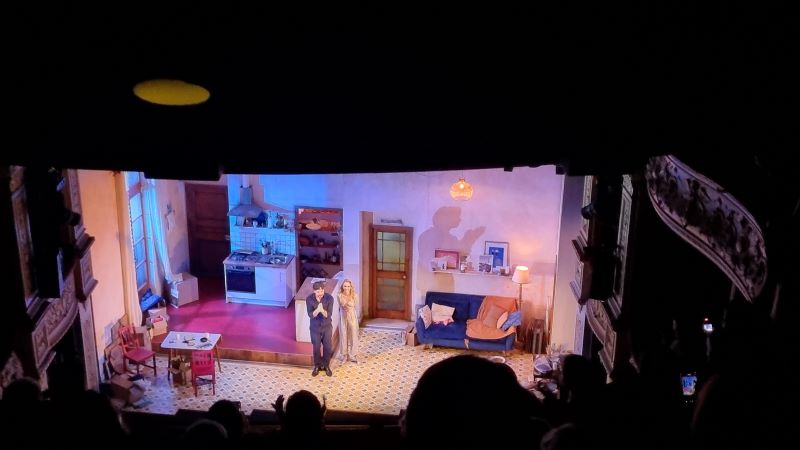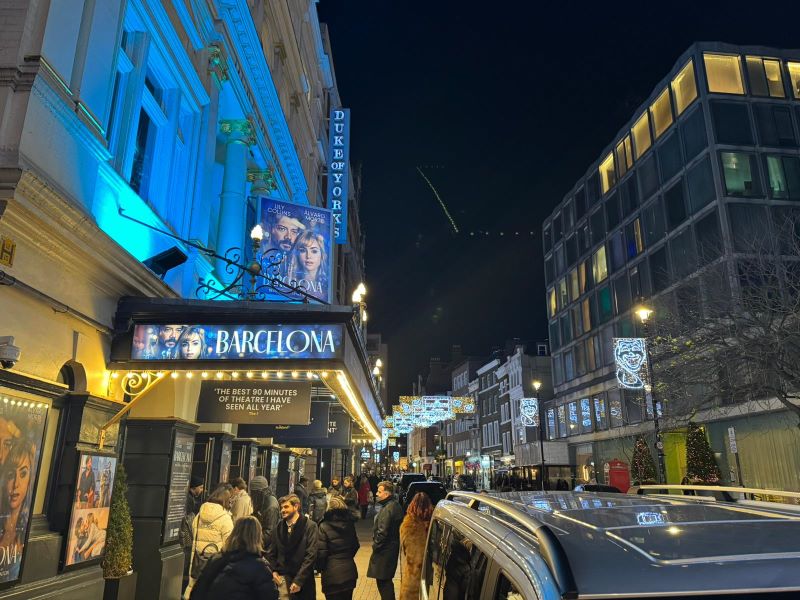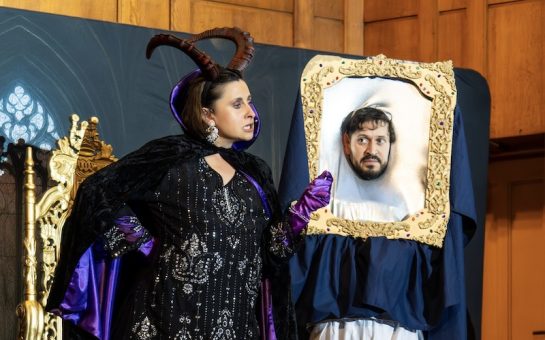Lynette Linton’s play Barcelona draws its audience to an enchanting, dark and mysterious performance of complicated grief and human connection.
Set across one night in a Barcelona apartment overlooking Sagrada Familia, an annoying American tourist Irene (Lily Collins) and handsome Spaniard Miguel (Alvaro Morte) meet for a one-night-stand.
The night takes an unexpected turn as both parties reveal troubling secrets, specifically a constrained fiancé and a deceased daughter.
At the heart of the tragedy, though, is what will happen when the sun finally rises.
Both actors gave a captivating performance which stood out with its solid contrasts.
The play was a mixture of passion, sexy humour, familiar stereotypes and an underlying string of human connection.
At the core of Barcelona is the fragile relationship between trust, intimacy and vulnerability.
The play questions shared trauma and the bonds humans make through pain.
Collins gave a good performance of an annoying archetype of a dumb American blonde.
Her movements were eccentric, clumsy and a brilliant contrast to the very tamed Miguel (Albaro Morte).
Collins dazzling jumpsuit and charisma lit the stage with her entrance.
Though her performance was weaker compared to Morte, it worked well as an exploration of a lost, trapped in a loveless engagement woman.
Irene’s yearning for excitement and discontent with her life was portrayed well by Collins.
She was bright, funny and her dramatic burst of energy and eccentric laughs highlighted the playful immaturity of her character.
Though during moments of reflection or emotional weight, she was outshone by Morte’s performance rather than meeting him.
Albaro Morte performed the dark, sexy Spanish love interest.
At first aloof, un-caring and arrogant, Morte built upon his performance revealing a hurt, sensitive man.
The lead to revealing Morte’s big secret was less dramatic and instead emphasised with Morte’s silence and emotional detachment.
His standout performance was his contrast to Collins’ franticness.
The power in Morte’s performance lay in his dominating posture, masculine bravado and indifference.
One highlight was Miguel’s quiet confession of his loss of his daughter.
The silence in the scene and Migiuel’s self-internalised rage was deafening, emphasising the weight of his grief.
Though Miguel’s troubling and confused perception of Irene as his daughter when she comes on stage wearing the deceased girl’s dress was conflicting.
Moments of Miguel’s aggression and dominance over Irene, isolated the audience from the performance.
Though powerful in its intent, it seemed more uncomfortable and did not fit with the rest of the play.
The play’s pacing felt a little uneven.
It began with an engaging fast-pace in the navigation of the awkward but electric meeting.
Then slowed during moments of shared secrets, and felt most disjointed with Miguel’s distorted perspective of Irene embodying his dead daughter.
Especially with their passionate embraces at the beginning.
However, the ending made up for it, gripping the audience with the uncertainty that matched the character’s fleeting, unstable connection.
The set design was simple, with small elements that were referenced throughout the play, such as moving boxes, drawings and a cuddly toy.

The small elements of the set were incorporated throughout the narrative.
It reflected the characters’ unsettled lives and inability to move on from their past.
Overall, Barcelona was a deeply introspective play, tackling difficult themes surrounding intimacy, grief, dissatisfaction and anger in a troubling setting of two contrasting characters.
Photo: Kasia Flisiuk





